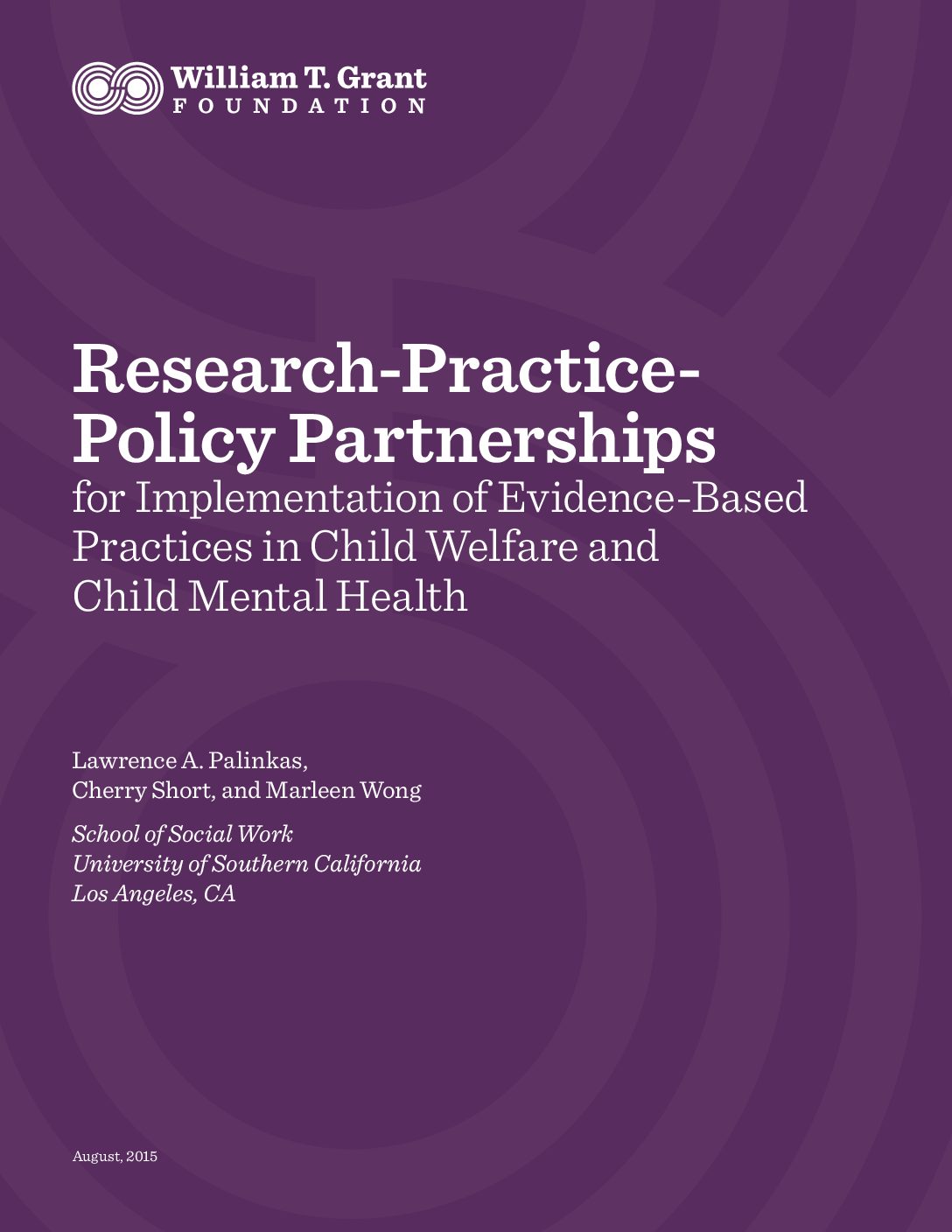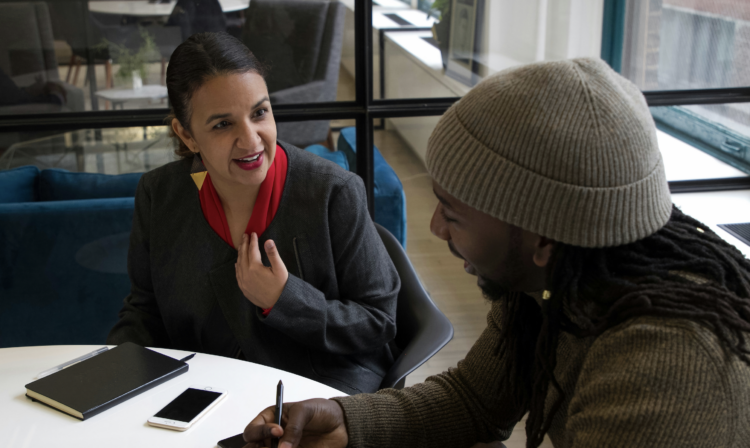Partnerships between researchers, practitioners, and policymakers represent a promising avenue for improving outcomes for young people and families.
In this report, Lawrence Palinkas, Cherry Short, and Marleen Wong of the University of Southern California’s School of Social Work suggest that research-practice-policy partnerships may help narrow the gap between the development of evidence-based services for young people in the child welfare and mental health systems and the routine delivery of these services.
Describing the structure and operations of partnerships, and the potential challenges to making them work, Palinkas and colleagues present three models of successful partnerships in the child welfare and mental health systems. Case studies for each model provide rich examples of the common elements and central themes that characterize the value of partnerships as a strategy for delivering high quality services in high demand settings.





